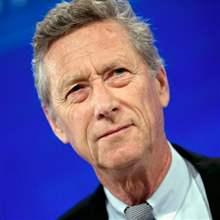The Brookings Institution is committed to quality, independence, and impact.
We are supported by a diverse array of funders. In line with our values and policies, each Brookings publication represents the sole views of its author(s).

Research
BPEA | 1984 No. 1
1984, No. 1
THE TURBULENT EVENTS in the world economy since 1973 have several times prompted the call for the major countries in the Organization for Economic Cooperation and Development (OECD) to coordinate their macroeconomic policies.I In the immediate aftermath of the 1973 oil price shock, for example, the finance ministers of the main industrial countries made a commitment, only partly fulfilled, to avoid deflationary policies designed to pass current account deficits on to partner countries. Following the deep recession of 1974-75, the Carter administration urged in 1977-78 a “locomotive approach” for world recovery, in which the major economies were to act jointly to stimulate a world expansion. This policy was adopted by the heads of state at the 1978 Bonn summit conference. After the world recession of 1980-82, several policymakers and economists called for a joint world reflation, but in this case the U.S. administration stood firmly opposed to such a coordinated policy. And recently, several economists have advocated that the European economies embrace more expansionary fiscal policies in return for reduced long-run U.S. deficits. The implication appears to be that while both the United States and Europe would benefit from such a swap in policy, neither side can or will undertake the prescribed policies independently.